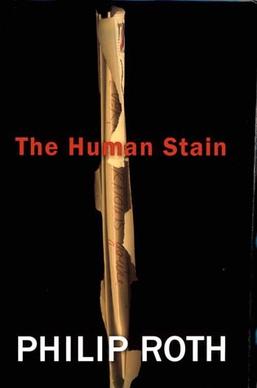
Why Did I Cry for Philip Roth?
Yet despite my cool, carefully cultivated critical distance on Philip Roth, the man and the writer, I found myself sobbing at the news that his heart had finally failed him. It was as if I had lost a family member. Why? My professional training always returns me to the text, so I found myself obsessing on two passages from Roth’s fiction. Taken together, these begin to explain the complexity and ambivalence expressed by my overactive tear ducts.
On the final page of Roth’s brilliant novel The Counterlife, Nathan Zuckerman meditates on the possibility that his pregnant, estranged Gentile wife will bear a son and that Nathan will insist that his male offspring be circumcised. As Nathan writes, “Circumcision confirms that there is an us, and an us that isn’t solely him and me.” Here, Nathan—and, by extension, Roth—confirms the need for a tribe, for a community, for the assertion and confirmation of Jewish difference. However, this “us” is the literary equivalent of a male minyan, and no place exists for the likes of me here. Through circumcision, I have been excised from the tribe. It is this unreflective excision, this ritual cut, that compels Jewish feminists to say Hineni—Here I am—differently and often with wounded womanly pride.
The second passage occurs early in The Plot Against America and is a paean to the labor of Jewish families in Weequahic, the origin of the Philip Roth who is the narrator of the novel as well as the writer himself. It’s a lengthy passage:
The men worked fifty, sixty, even seventy or more hours a week; the women worked all the time, with little assistance from labor-saving devices, washing laundry, ironing shirts, mending socks, turning collars, sewing on buttons, mothproofing woolens, polishing furniture, sweeping and washing floors, washing windows, cleaning sinks, tubs, toilets, and stoves, vacuuming rugs, nursing the sick, shopping for food, cooking meals, feeding relatives, tidying closets and drawers, overseeing paint jobs and household repairs, arranging for religious observances, paying bills and keeping the family’s books while simultaneously attending to their children’s health, clothing, cleanliness, schooling, nutrition, conduct, birthdays, discipline, and morale.
Here (and throughout the novel), the traditional work of women is not only visible, it is valued. The elongated sentence mirrors the elongated workday of women like Bess Roth, Philip’s mother, who will heroically fight American-born fascists who set their sights on families like hers. Bess is no Sophie Portnoy, and the Jewish mother is revealed as always already a working woman.
For me, these two passages confirm the curses and the blessings that Philip Roth conferred on women in general and Jewish women in particular. He refused to leave his Jewishness behind, but too often cast the fetishized, eroticized, and objectified Gentile woman as his antagonist on the page. In often exquisite prose and with narrative complexity that honored the wilderness of the world, he unwittingly reminded me that my Jewish belonging cannot be taken for granted, and he made me too grateful for glimpses of Jewish womanhood that didn’t make me cringe. He represented the truth that timeless aesthetic and religious traditions could have toxic effects.
I refuse to throw the baby out with the bathwater. I’m a Jew who’s also a feminist. I’m an advocate of great literature who nonetheless refuses to be seduced by the immensely talented boys and men who, often unintentionally, do violence against my body and soul. It’s stressful to maintain such ambivalence, but the alternative of becoming a fangirl or a rejecter strikes me as much, much worse. So when Philip Roth died, I found myself in mourning for what he did and didn’t mean to me. And I cried.
Helene Meyers is Professor of English and McManis University Chair at Southwestern University in Texas. The author of three books, most recently Identity Papers: Contemporary Narratives of American Jewishness, she is currently at work on a project about Jewish American movies. Her more journalistic work has appeared in Lilith, Tablet, Forward, Ms. Magazine Blog, the Washington Independent Review of Books, the Chronicle of Higher Education, and Inside Higher Education. Find her on Twitter: @helene_meyers
One comment on “Why Did I Cry for Philip Roth?”
Comments are closed.




What a beautiful tribute to Philip Roth and to Jewish Women. What an accomplished piece of writing.